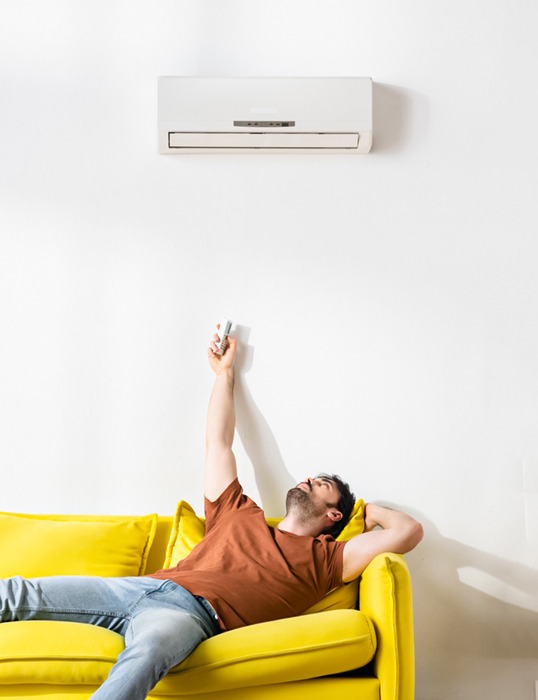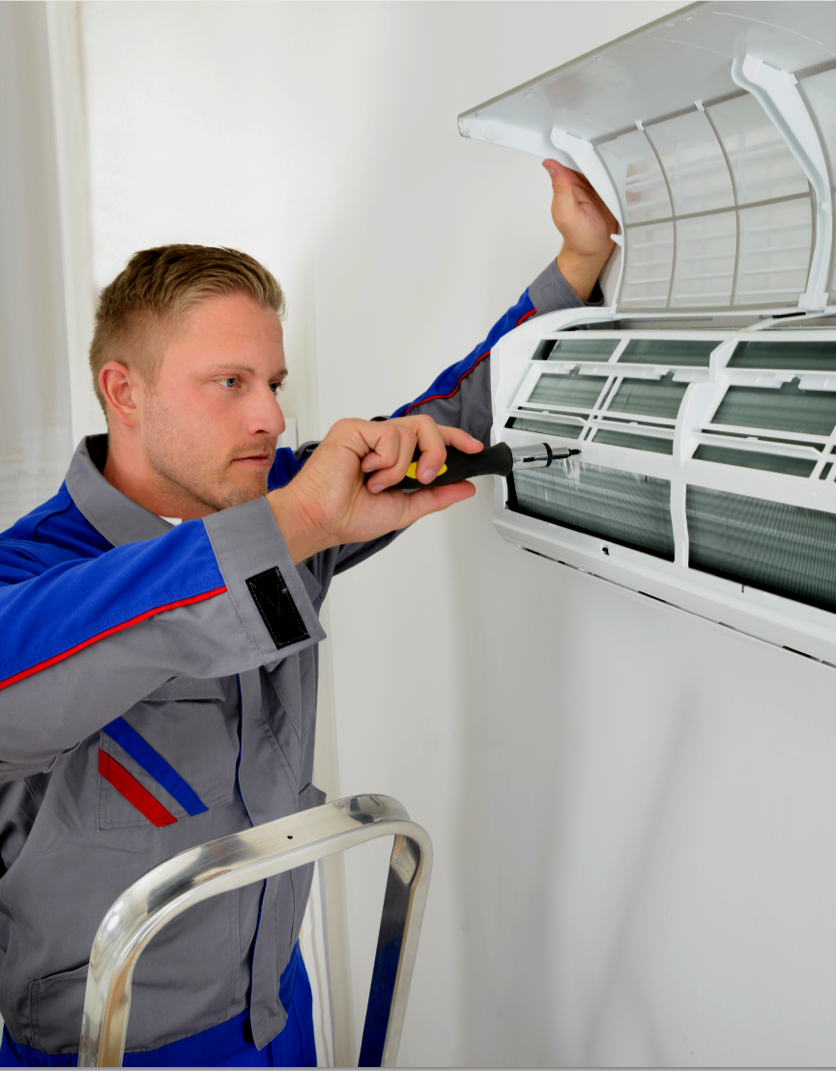Common Causes Of Poor Air Quality In The Home
Do you often feel tired or suffer from frequent headaches? Do you have trouble sleeping or experience respiratory problems at home? If so, your indoor air quality may be to blame. Poor air quality can have negative effects on your health, and it’s important to understand the common causes so you can take steps to improve it.
One of the most common causes of poor air quality in the home is inadequate ventilation. When the air inside your home is not properly circulated, it can become stale and filled with pollutants. This can lead to a variety of health issues, including headaches, fatigue, and respiratory problems. But ventilation is not the only culprit. There are several other factors that can contribute to poor air quality in your home, from household products to pet dander and smoking. In this article, we’ll explore the most common causes of poor air quality in the home, and offer simple solutions to help you breathe easier.
Inadequate Ventilation
You’re probably not thinking about it, but if you don’t open your windows or use exhaust fans, your air quality could suffer from inadequate ventilation. Proper ventilation is crucial for maintaining good indoor air quality. It helps remove pollutants and moisture from the air, which can cause health problems and damage to your home.
The benefits of ventilation are numerous. It helps regulate temperature, reduces moisture levels, and removes harmful pollutants from the air. Without proper ventilation, your home can become a breeding ground for mold and other allergens. It’s important to understand the importance of air circulation in your home to ensure that you and your family are breathing clean, healthy air. By opening windows, using exhaust fans, and maintaining your HVAC system, you can improve your indoor air quality and reduce the risk of health problems.

Pollutants from Household Products
Household products like cleaning supplies, pesticides, and air fresheners can release harmful chemical emissions into the air, which can contribute to poor indoor air quality. These emissions can cause a range of health problems, from headaches and allergies to more serious respiratory issues. For this reason, it’s important to be mindful of the products you use in your home and to ensure that they are safe and non-toxic.
One way to ensure that your indoor air quality is not being compromised by household products is to have your home tested. Indoor air quality testing can help you identify any sources of pollution in your home, including those from household products. By taking steps to reduce or eliminate these sources of pollution, you can improve the air quality in your home and protect the health of you and your family. So, take the time to consider the products you use in your home and make sure they are not contributing to poor indoor air quality.
Pet Dander and Other Allergens
Additionally, it’s essential to be mindful of pet dander and other allergens that can contribute to compromised indoor air quality. If you have pets in your home, you may notice an increase in sneezing, coughing, and other allergy symptoms. This is because pets shed dander, hair, and other particles that can easily become airborne and circulate throughout your home.
To minimize the impact of pet dander on your indoor air quality, it’s important to regularly groom your pets. This includes brushing them frequently and giving them regular baths. Additionally, you can invest in an air purifier to filter out any allergens that may be in the air. By taking these steps, you can ensure that your home’s air quality remains healthy and comfortable for everyone in your household, including your furry friends.
Smoking and Secondhand Smoke
Smoking and secondhand smoke can greatly impact the air quality in your living space, so it’s crucial to be aware of the risks and take steps to minimize exposure. Cigarette smoke contains harmful chemicals like carbon monoxide, formaldehyde, and benzene, which can be dangerous to your health. Not only can smoking lead to serious health effects like lung cancer and heart disease, but it can also worsen respiratory conditions like asthma and chronic obstructive pulmonary disease (COPD).
If you or someone in your household smokes, the best thing you can do for your health and the air quality in your home is to quit smoking. This can be a difficult process, but there are many resources available to help you quit, like nicotine replacement therapy and support groups. Additionally, you can reduce your exposure to secondhand smoke by asking smokers to smoke outside, using air purifiers, and opening windows to improve ventilation. By taking these steps, you can improve the air quality in your home and protect yourself and your loved ones from the harmful effects of smoking and secondhand smoke.
High Humidity Levels
You may not realize it, but excess moisture in your living space can be a major problem during the summer months. High humidity levels can lead to mold growth, which can cause respiratory problems and allergic reactions. Mold spores can also worsen symptoms for those with asthma or other respiratory conditions. In addition, high humidity can make your home feel uncomfortable and stuffy, which can affect your sleep and overall well-being.
One way to combat high humidity levels is by using a dehumidifier. Dehumidifiers work by removing excess moisture from the air, making your living space more comfortable and reducing the risk of mold growth. In addition to preventing mold, dehumidifiers can also help reduce the amount of dust mites in your home, which can also trigger allergies and respiratory problems. Another way to prevent mold is by keeping your living space well-ventilated and using exhaust fans in bathrooms and kitchens. By taking these simple steps, you can improve the air quality in your home and create a healthier living environment.
Improving Indoor Air Quality with Simple Solutions
Improving the air you breathe can be as easy as implementing simple solutions like using air purifiers and regularly cleaning your living space. Air purifiers are a great way to filter out indoor air pollutants such as dust, pet dander, and mold. They work by trapping these particles in a filter and releasing clean air back into the room. You can find a variety of air purifiers on the market, from small portable ones to larger units that can purify an entire room.
In addition to air purifiers, you can also improve indoor air quality by incorporating natural remedies like air purifying plants. Certain plants such as snake plants, spider plants, and peace lilies are known for their ability to remove toxins from the air. They also add a touch of greenery to your living space, making it more inviting and relaxing. Regular cleaning of your living space is also crucial in maintaining good indoor air quality. Dusting, vacuuming, and wiping down surfaces can help reduce the amount of dust and other allergens that accumulate in your home. By implementing these simple solutions, you can breathe easier and enjoy a healthier living environment.

Conclusion
So now you know the common causes of poor air quality in the home, but what can you do about it? Luckily, there are some simple solutions you can implement to improve the air you breathe indoors.
First and foremost, make sure your home is well-ventilated. Open windows and doors when weather permits, and consider installing exhaust fans in bathrooms and kitchens. Use natural cleaning products and avoid smoking indoors. Regularly dust and vacuum to remove pet dander and other allergens. And finally, keep humidity levels in check by using a dehumidifier or air conditioning unit. By taking these steps, you can breathe easy knowing you’re doing everything you can to improve the air quality in your home.







